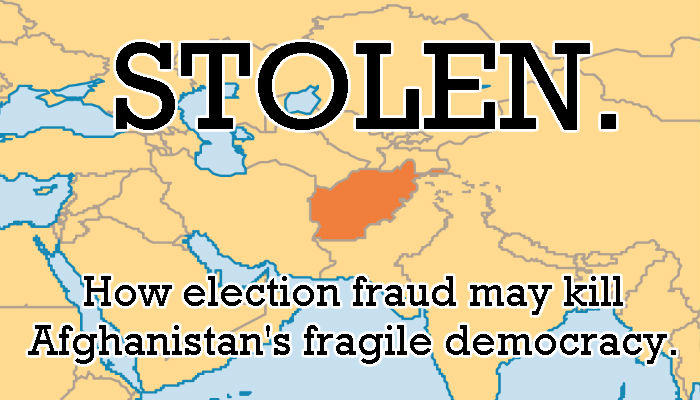
Fury at Afghan election fraud brings huge protest to streets of Kabul | Democracy, elections, and voting at Democracy Chronicles
Thousands March Across Kabul To Protest Election Fraud
From BBC:
Thousands of supporters of Afghan presidential candidate Abdullah Abdullah have marched through Kabul to protest against alleged fraud. The protesters, who were joined by Mr Abdullah, echoed his claims that the 14 June vote had been rigged against him. Vote counting shows that Mr Abdullah is trailing his rival, Ashraf Ghani, who has also complained of fraud.
The dispute has revived fears for Afghanistan’s stability after the withdrawal of US-led forces this year. The head of the United Nations mission in Afghanistan, Jan Kubis, has warned that a contested election result could inflame ethnic tensions and lead to “a slide into violence”. US-led troops and Afghan forces have been battling Taliban insurgents across much of the country. The Afghan government has yet to ratify a deal that would permit a smaller number of US troops to remain in the country beyond 2014.
From CIA World Factbook:
Ahmad Shah DURRANI unified the Pashtun tribes and founded Afghanistan in 1747. The country served as a buffer between the British and Russian Empires until it won independence from notional British control in 1919. A brief experiment in democracy ended in a 1973 coup and a 1978 communist counter-coup. The Soviet Union invaded in 1979 to support the tottering Afghan communist regime, touching off a long and destructive war. The USSR withdrew in 1989 under relentless pressure by internationally supported anti-communist mujahedin rebels. A series of subsequent civil wars saw Kabul finally fall in 1996 to the Taliban, a hardline Pakistani-sponsored movement that emerged in 1994 to end the country’s civil war and anarchy.
Following the 11 September 2001 terrorist attacks, a US, Allied, and anti-Taliban Northern Alliance military action toppled the Taliban for sheltering Osama BIN LADIN. The UN-sponsored Bonn Conference in 2001 established a process for political reconstruction that included the adoption of a new constitution, a presidential election in 2004, and National Assembly elections in 2005. In December 2004, Hamid KARZAI became the first democratically elected president of Afghanistan and the National Assembly was inaugurated the following December. KARZAI was re-elected in August 2009 for a second term. Despite gains toward building a stable central government, a resurgent Taliban and continuing provincial instability – particularly in the south and the east – remain serious challenges for the Afghan Government.
Leave a Reply